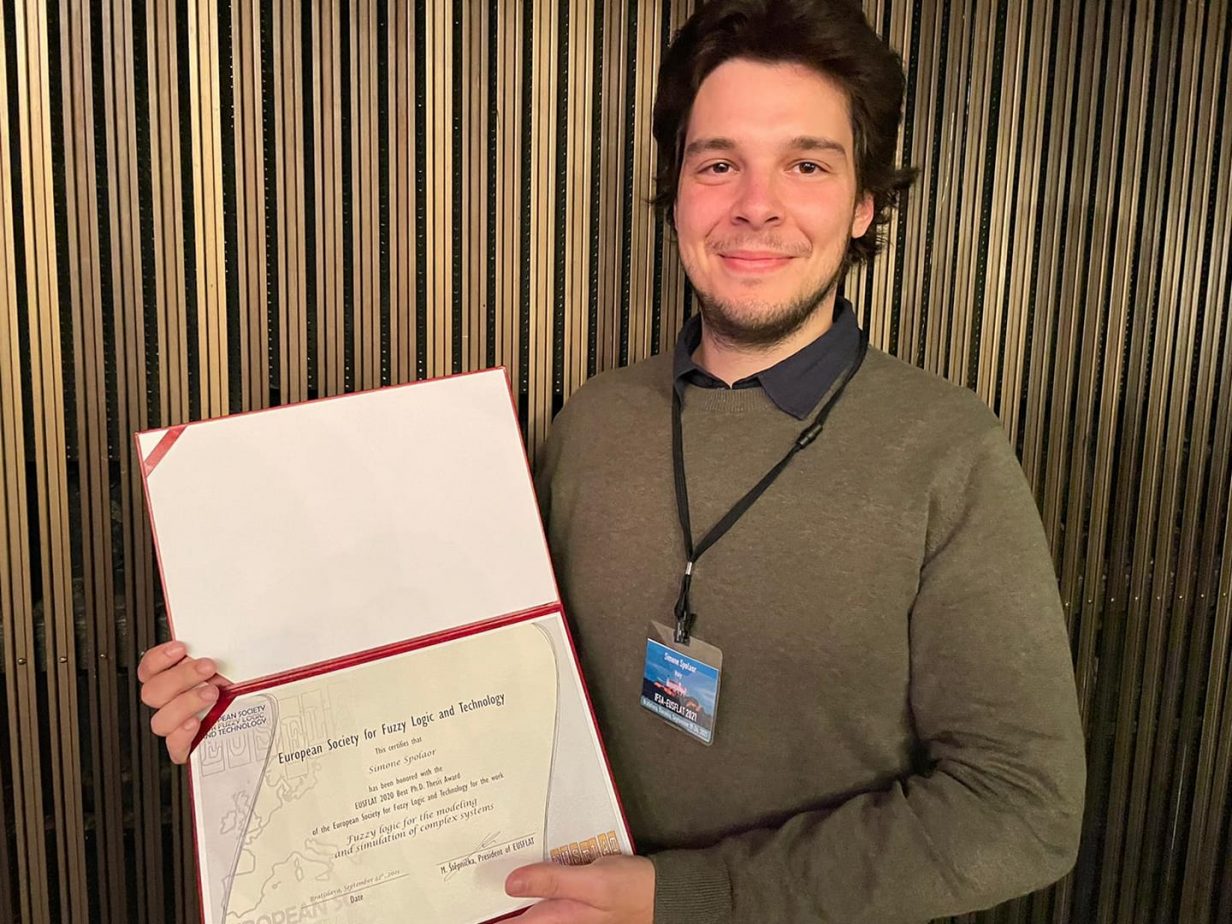Dual seminar on Interpretability at the Jheronimus Academy of Data Science (JADS)
On May 7th, Marie Curie fellow Chiara Gallese and I have been kindly invited by Prof. Uzay Kaymak to give two seminary at the Jheronimus Academy of Data Science (JADS) in ‘s-Hertogenbosch, The Netherlands. Since Chiara’s MSCA revolves around fairness of AI in biomedicine and healthcare, with a focus on non-discriminatory data use and reuse, …
Simone Spolaor recipient of EUSFLAT 2020 best PhD thesis award
My former PhD student, Simone Spolaor, was awarded by EUSFLAT for the best 2020 PhD thesis on fuzzy logic. Prof. Daniela Besozzi (Simone’s main advisor) and me are incredibly proud of this achievement. Simone’s thesis, titled “Fuzzy Logic for the modeling and simulation of complex systems”, is an investigation about moving back and forth from …
Simpful’s paper accepted
Simpful is now mature enough to have an official paper associated to the project. Our manuscript — describing both Simpful functionalities and inner machinery — was accepted for publication on the International Journal of Computational Intelligence Systems. In the meanwhile, the development of Simpful continues. We will introduce support for additional reasoning systems and, in …
Simpful v 2.1.5
We recently published the Release 2.1.5 of Simpful, our python tool for fuzzy modeling and reasoning. The new release supports the following improvements: Mamdani reasoning (which implies the support for output fuzzy sets); new pre-baked fuzzy sets (Triangular, Trapezoid) which integrate the already existing objects (e.g., Sigmoid, Gaussian). Of course, Simpful still supports the design …
IEEE WCCI: triplete!
This year, the IEEE World Congress on Computational Intelligence (WCCI) will be held in Glasgow, UK. The WCCI embeds three major IEEE conferences related to Computational Intelligence, that is: The International Joint Conference on Neural Networks (IJCNN) The International Conference on Fuzzy Systems (FUZZ-IEEE) The World Congress on Evolutionary Computation (CEC) This year, I had …
New (feature) paper published on Entropy
How to smooth out the fitness landscapes by means of Fourier transforms?
New paper about Dynamic Fuzzy Modeling accepted on Bioinformatics
Many years ago we started a cooperation with the Department of Biotechnology and Biosciences of the University of Milano-Bicocca. The goal was to govern programmed cell death on K-ras cancer cells under conditions of glucose starvation. Glucose is directly related to metabolism, i.e., glycolysis and TCA cycle in mitochondria, which in turn determine the production …
FST-PSO release 1.6.0
Fuzzy Self-Tuning PSO was upgrade to version 1.6.0. The source code can be downloaded from GITHUB, and the python package can be easily installed using pip. This is the first release officially supporting Python 3. I managed to solve some pending issues with the packaging system, and I fixed miniful’s support (even though I am …
Best Paper Award at IEEE CIBCB’19
In early July, I presented our joint research with the European Institute of Oncology (IEO) at the 2019 IEEE Conference on Computational Intelligence in Computational Biology and Bioinformatics (CIBCB 2019). The paper, titled “ProCell: Investigating cell proliferation with Swarm Intelligence”, focuses on the investigation of AML blasts by means of ProCell, the stochastic modeling and …
New paper accepted on IEEE Transactions on Fuzzy Systems
We use Fuzzy Logic to create interpretable models of heterogeneous cellular systems characterized by uncertainty…








Recent Comments